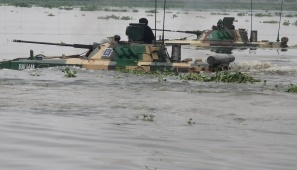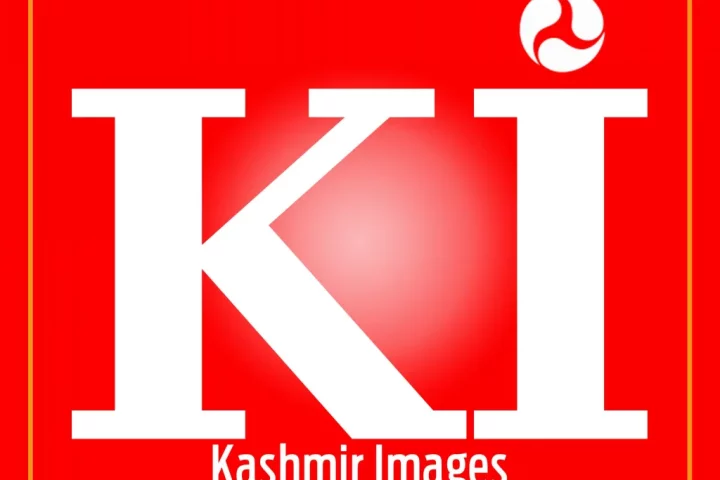By: Dr. Rahul Bharatbhushan Kamble
Standing at one end of the Red carpet, North Korean leader Kim Jong Un warmly embraced Russian President Vladimir Putin upon his arrival in Pyongyang last week, saying the two sanctioned states had withstood the ‘trials of history, generation after generation and century after century’. Before his arrival, his first trip to North Korea in nearly a quarter-century, Putin thanked Kim for “firmly supporting” his war against Ukraine, fuelling concerns the two leaders will use this visit to deepen their military partnership in the face of Western efforts to isolate them.
The security pact reached between Russian President Vladimir Putin and North Korean leader Kim Jong-un in Pyongyang, in which both countries promised mutual assistance “in the event of aggression”, has echoes from the Cold War era. Russia and North Korea, erstwhile allies, are facing biting sanctions, but for different reasons. And, both are at odds with the West. Now, they seem determined to revive the alliance so that they can stand up to the western-led global order together.
Putin’s visit to Pyongyang, his first in 24 years, itself marked a new beginning. The Russian leader has supported multilateral efforts to curb the North’s nuclear programme in the past. Moscow had also voted for sanctions at the UN Security Council against Pyongyang over its nuclear arsenals. But the Ukraine war appears to have altered Kremlin’s geopolitical arithmetic and provided an opportunity for Pyongyang to make itself useful as an ally. When the Ukraine war dragged on and Russia came under western sanctions, Putin turned to Jong Un for ammunition and ballistic missiles. After Kim’s visit to Russia in September 2023, North Korea reportedly supplied ammunition to Russia.
Moscow stepped up supplies of food and fuel, and there was speculation that it could help the North’s defence sector with critical technologies. While both have rejected reports of weapons trade, the security pact clearly elevates ties to the level of a de facto alliance.
One of the immediate implications of Putin’s visit is the potential to weaken the international sanctions regime against North Korea. By establishing robust trade and financial channels with Russia, North Korea could alleviate some of the economic pressures that have crippled its economy. However, this would likely provoke a strong response from Western countries, potentially leading to new rounds of sanctions or diplomatic measures against both Russia and North Korea.
The European Union and other global powers may also join these efforts, seeking to uphold the integrity of the international sanctions framework and prevent erosion of its effectiveness, particularly in influencing the North Korean nuclear program. The visit could have significant implications for North Korea’s nuclear ambitions. If cooperation with Russia is enhanced, it may provide Pyongyang with critical resources, technology, and expertise to advance its nuclear and missile programs.
This scenario would worsen security concerns not only for neighbouring countries but also for the international community as a whole. The possibility of North Korea accelerating weapons development could lead to a regional arms race, with South Korea and Japan potentially bolstering their military capabilities in response. Moreover, this could hinder denuclearization efforts and complicate negotiations, making it even more challenging to achieve a peaceful resolution to the North Korean nuclear issue.
Ever since the Ukraine war, Mr. Putin has steadily expanded Russia’s cooperation with countries that are at odds with the U.S. He reportedly bought kamikaze drones from Iran. China has also emerged as a key economic, technological and energy partner. And, by promising to help North Korea, an isolated, one-family-ruled totalitarian state that is still technically at war with South Korea, in the event of an attack, Russia has signalled its readiness to play a larger role in northeast Asia.
Mr. Putin, essentially a cold warrior, wants to build an axis of the ‘Others’,opposed by the West to expedite the churn in the global order. China remains cautious but seems fine with the idea of its closest partners challenging the western order. This will have far-reaching geopolitical consequences. North Korea will now have little incentive to discuss denuclearization. Russia, which already has testy ties with Japan, could see its relationship with South Korea deteriorating. The agreement is also likely to strengthen the emerging tripartite partnership in East Asia among Japan, South Korea and the U.S., further solidifying the new cold war between great powers, which is still in its early stages
Given the implications of this partnership, the United States and it’s allies are expected to respond decisively. Increased military presence in the region coupled with fortified defence commitments to South Korea and Japan, will serve as pivotal measures for maintaining a balance of power. Additionally, the United States may explore the array of further sanctions or diplomatic options to measures counter the influence of the Russia-Korea North alliance. Furthermore, the United States may strengthen its missile systems defence within the region, deploying advanced technology to protect against potential threats emanating from North Korea.
However, it should be noted that while these measures aim to deter aggression, they could provoke further militarisation and response from Russia and North Korea resulting thus in a potentially dangerous escalation.
This visit is significant beyond the bilateral relationship and has the potential to impact the broader geopolitical landscape of East Asia. For South Korea and Japan, who are traditional allies of the United States, the strengthening ties between Russia and North Korea raise significant security concerns. These nations may see the visit as a direct challenge to their security interests, leading them to re-evaluate their defence strategies and diplomatic approaches. Additionally, the United States, which has long sought to isolate North Korea through sanctions and diplomatic pressure, sees this development as undermining its efforts.
As a result, the U.S. could increase its military presence in the region to counterbalance Russian influence. On a global scale, the visit reflects Russia’s broader strategic objective of asserting influence and challenging US dominance in international affairs. By aligning closely with North Korea, Russia aims to expand its geopolitical reach and create a counterbalance to Western hegemony. This strategy might inspire other countries under international sanctions, such as Iran or Venezuela, to seek similar alliances, thereby complicating global diplomatic and economic relations. Furthermore, this visit highlights the shifting dynamics of international alliances, where traditional power blocs are increasingly being questioned and redefined in response to evolving geopolitical realities.
It becomes crucial for the International community to closely monitor these developments and responses to maintain stability all in all. This visit serves as a clear reminder of the complexities and interconnectedness of contemporary international relations and actions, where the actions of one state can have far-reaching consequences for global peace and security. Also, what it reminds is that the world is far from reality to think that we have escaped the Cold-War spectrum.
The writer is freelancer writer from Mumbai.

Kashmir Images is an English language daily newspaper published from Srinagar (J&K), India. The newspaper is one of the largest circulated English dailies of Kashmir and its hard copies reach every nook and corner of Kashmir Valley besides Jammu and Ladakh region.









